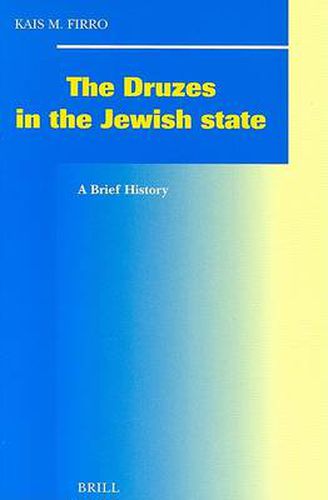Readings Newsletter
Become a Readings Member to make your shopping experience even easier.
Sign in or sign up for free!
You’re not far away from qualifying for FREE standard shipping within Australia
You’ve qualified for FREE standard shipping within Australia
The cart is loading…






Following the war of 1948 Palestine’s Druzes became part of the state of Israel. Overwhelmingly rural, they sought to safeguard their community’s age-old ethnic independence by holding on to their traditional ethno-religious particularism. Ethnicity and ethnic issues, however, were ready tools for the Zionists in the pursuit of their policy aims vis-a-vis the state’s Arab population. Central among these was the cooptation of part of the Druze elite in an obvious effort to alienate the Druzes from the other Arabs - creating good Arabs and bad Arabs served the Jewish state as a foil for its ongoing policy of dispossession and control.
The author painstakingly documents the political, social and economic factors that ensured the success of these Zionist policies, but concludes that the fissured identity of Israel’s Druzes today bespeaks a feeling of musiba, tragedy, within the community itself.
$9.00 standard shipping within Australia
FREE standard shipping within Australia for orders over $100.00
Express & International shipping calculated at checkout
Following the war of 1948 Palestine’s Druzes became part of the state of Israel. Overwhelmingly rural, they sought to safeguard their community’s age-old ethnic independence by holding on to their traditional ethno-religious particularism. Ethnicity and ethnic issues, however, were ready tools for the Zionists in the pursuit of their policy aims vis-a-vis the state’s Arab population. Central among these was the cooptation of part of the Druze elite in an obvious effort to alienate the Druzes from the other Arabs - creating good Arabs and bad Arabs served the Jewish state as a foil for its ongoing policy of dispossession and control.
The author painstakingly documents the political, social and economic factors that ensured the success of these Zionist policies, but concludes that the fissured identity of Israel’s Druzes today bespeaks a feeling of musiba, tragedy, within the community itself.